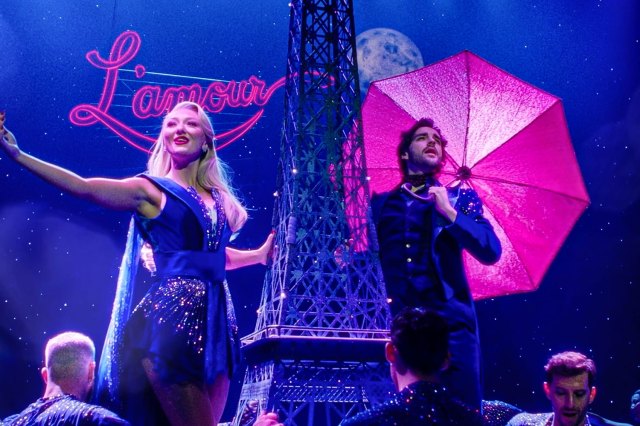Much Ado About Nothing (Globe)
Tamara Harvey’s new Globe production of Much Ado About Nothing – like the The Taming of the Shrew and Richard III at the same address last year – is played by an all-female cast. But, while the use of actresses brought a new dimension to those plays and offered several insights into the characters, this time it seems like a step too far – a gimmick for gimmick’s sake.
Part of the problem is that Much Ado depends less on characterisation than on the interplay between Beatrice and Benedict, whose dazzling verbal jousts tend to mask that this play lacks the depth of human insight displayed in some of Shakespeare’s later plays.
Unfortunately, Harvey’s production is light on wit as Josie Lawrence’s Benedict and Yolanda Vasquez’s Beatrice struggle to concoct the chemistry necessary to ignite and unite the lovers. This is certainly no fault of Vasquez, who brings out all of Beatrice’s merriment (although she does have the strange habit of grinning after her own witty quips).
Lawrence, however, makes heavy weather of the martial Benedict, whose transformation from soldier to lover is crucial. Lawrence’s Benedict looks about as fearsome as Lily Savage. As a result, we also miss out on the male camaraderie that is such an important part of the play – particularly when Benedict must choose between Claudio and Beatrice.
Rachel Sanders tries hard to make Don John a ‘plain-dealing villain’, and she has just the right sardonic tone, but there’s just a little too much pantomime villain there and Belinda Davison’s Don Pedro is far too characterless.
A lot of the company seem to have problems with the voices, too. Perhaps the strain of impersonating men is distracting them, but some of the diction is truly dreadful. It’s true that the Globe isn’t one of the easiest places to perform, but here whole speeches are gabbled. Or perhaps the women are distracted by the beards, some of which are particularly luxuriant and preposterous examples of facial fungus.
As Dogberry, only Sarah Woodward brings any real joy to proceedings. Her deadpan expression lends real comedy to this role, too often over-acted, and she imbues the character with all the pomposity and self-importance she can muster. In this instance, there may indeed be some advantage in the casting: could a man be as self-critical? Perhaps not. And Woodward’s scenes with the watch in particular inject some much-needed light relief.
On this Much Ado press night, I sometimes found it hard to believe I was watching one of the wittiest and lightest of Shakespeare’s comedies. No doubt, the cast worked hard – which may be the biggest indictment of all. This comedy should flow and the lines should sparkle. Sadly, it doesn’t and they don’t.
– Maxwell Cooter












